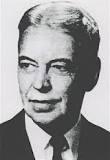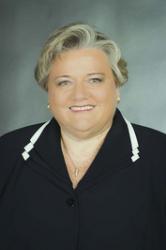Planning worship?
Check out our sister site, ZeteoSearch.org,
for 20+ additional resources related to your search.
- |
User Links
Person Results
Walter Russell Bowie

1882 - 1969 Person Name: W. Russell Bowie, 1882-1969 Scripture: Mark 13:2 Author of "Lord Christ, When First You Came to Earth" in Worship (3rd ed.) Walter Russell Bowie (October 8, 1882–April 23, 1969), was a priest, author, editor, educator, hymn writer, and lecturer in the Episcopal Church (United States).
See also in:
Wikipedia
Walter Russell Bowie
Alberto Merubia
1919 - 2013 Person Name: Alberto Merubia, b. 1919 Scripture: Mark 13:5-13 Translator of "Go Make of All Disciples (¡Discípulos Han de Ganar!)" in Oramos Cantando = We Pray In Song
Alberto Merubia
Rory Cooney
b. 1952 Scripture: Mark 13:2 Author of "My Soul Cries Out" in Voices Together
Rory Cooney
Aaron Keyes
Scripture: Mark 13:1-13 Author of "O praise him, hallelujah" in Singing the Faith Aaron Keyes has served as worship pastor at Grace Fellowship Church in George, Atlanta, for ten years. He and his wife Megan graduated from Furman University in Greensville, South Carolina, where they were part of planting City Church with Aaron’s parents. Passionate about training worship leaders to become worship pastors, in 2007 Aaron and Megan began their Worship School. For a few months out of the year, a group of young worship leaders live with them and their four sons as part of an intensive worship discipleship course. Aaron travels internationally with his band, leading worship and training leaders.
Laura de Jong
Aaron Keyes
Stuart Townend
Person Name: Stuart Townend, b. 1963 Scripture: Mark 13:1-13 Author of "O praise him, hallelujah" in Singing the Faith Stuart Townend (b. 1963) grew up in West Yorkshire, England, the youngest son of an Anglican vicar. He started learning piano at a young age, and began writing music at age 22. He has produced albums for Keith Routledge and Vinesong, among many others, and has also released eight solo albums to date. Some of his better-known songs include “How Deep the Father’s Love,” “The King of Love,” and “The Power of the Cross.” He continues to work closely with friends Keith and Kristyn Getty, and is currently a worship leader in Church of Christ the King in Brighton, where he lives with wife Caroline, and children Joseph, Emma and Eden.
Laura de Jong
Stuart Townend
Anna Briggs
b. 1947 Person Name: Anna Briggs, b. 1947 Scripture: Mark 13:7-8 Author of "We lay our broken world" in Singing the Faith
Anna Briggs
Constance Cherry

b. 1953 Person Name: Constance Cherry, 1953- Scripture: Mark 13:5-8 Author of "When Will People Cease Their Fighting?" in Worship and Rejoice Rev. Dr. Constance Cherry is an experienced professor, worship leader, musician, and pastor, having served in local church ministry and academic teaching positions for more than thirty years. While a young woman she received a life-time vocational call to serve Christ through serving his Church. For many years she served as a full-time minister of music in large churches where she directed multiple types of choral groups and instrumental ensembles, prepared worship services, and provided leadership for the many dimensions of the multi-faceted church music program. Her undergraduate degree in music (Huntington University) and her Master of Music degree (Bowling Green State University) prepared her well for the musical expertise required of such positions.
A growing interest in formal worship studies drew her eventually to pursue doctoral studies at Northern Baptist Theological Seminary (Chicago area). There she studied with Robert E. Webber who was not only Constance’s professor but also the supervisor for her doctoral thesis, “Discovering Your Vision for Worship: Teaching Worship in an Interdenominational Seminary Setting.” (see www.tren.com). As a result, her vocational call to ministry expanded into teaching seminary full-time at Winebrenner Theological Seminary, Findlay, Ohio, and serving congregations as pastor. Constance is ordained in the United Methodist Church.
Today Constance is Professor of Worship and Pastoral Ministry at Indiana Wesleyan University, Marion, Indiana where she directs the major in Christian Worship. Since 2000 she has served on the faculty of The Robert E. Webber Institute for Worship Studies located in Jacksonville, Florida, traveling twice yearly to teach in the doctoral program of IWS. In addition, she teaches worship at institutions of higher education in several countries, most recently in the Master’s program at the Evangelische Theologische Faculteit (Evangelical Theological Faculty) in Leuven, Belgium (2008 & 2010).
Constance is frequently called upon to serve as conference speaker on matters related to worship and church music. She is a published composer (Lorenz, Hope Publishing Company, and Celebrations Unlimited) as well as the author of many hymn texts. She currently has hymns in seven major hymnals. In addition to her three published books, Constance’s other publications include articles in numerous magazines such as Worship Leader, The Hymn, Reformed Worship, Worship Arts, and Creator. A native of Michigan, Constance enjoys traveling, playing the piano, walking, and hanging out with family and friends.
--theworshiparchitect.com/
Constance Cherry
C. Hubert H. Parry

1848 - 1918 Person Name: C. Hubert H. Parry, 1848-1918 Scripture: Mark 13:5-8 Composer of "RUSTINGTON" in Worship and Rejoice Charles Hubert Hastings Parry KnBch/Brnt BMus United Kingdom 1848-1918. Born at Richmond Hill, Bournemouth, England, son of a wealthy director of the East India Company (also a painter, piano and horn musician, and art collector). His mother died of consumption shortly after his birth. His father remarried when he was three, and his stepmother favored her own children over her stepchildren, so he and two siblings were sometimes left out. He attended a preparatory school in Malvern, then at Twyford in Hampshire. He studied music from 1856-58 and became a pianist and composer. His musical interest was encouraged by the headmaster and by two organists. He gained an enduring love for Bach’s music from S S Wesley and took piano and harmony lessons from Edward Brind, who also took him to the ‘Three Choirs Festival in Hereford in 1861, where Mendelssohn, Mozart, Handel, and Beethoven works were performed. That left a great impression on Hubert. It also sparked the beginning of a lifelong association with the festival. That year, his brother was disgraced at Oxford for drug and alcohol use, and his sister, Lucy, died of consumption as well. Both events saddened Hubert. However, he began study at Eton College and distinguished himself at both sport and music. He also began having heart trouble, that would plague him the rest of his life. Eton was not known for its music program, and although some others had interest in music, there were no teachers there that could help Hubert much. He turned to George Elvey, organist of St George’s Chapel, Windsor Castle, and started studying with him in 1863. Hubert eventually wrote some anthems for the choir of St George’s Chapel, and eventually earned his music degree. While still at Eton, Hubert sat for the Oxford Bachelor of Music exam, the youngest person ever to have done so. His exam exercise, a cantata: “O Lord, Thou hast cast us out” astonished the Heather Professor of Music, Sir Frederick Ouseley, and was triumphantly performed and published in 1867. In 1867 he left Eton and went to Exeter College, Oxford. He did not study music there, his music concerns taking second place, but read law and modern history. However, he did go to Stuttgart, Germany, at the urging of Henry Hugh Pierson, to learn re-orchestration, leaving him much more critical of Mendelssohn’s works. When he left Exeter College, at his father’s behest, he felt obliged to try insurance work, as his father considered music only a pastime (too uncertain as a profession). He became an underwriter at Lloyd’s of London, 1870-77, but he found the work unappealing to his interests and inclinations. In 1872 he married Elizabeth Maude Herbert, and they had two daughters: Dorothea and Gwendolen. His in-laws agreed with his father that a conventional career was best, but it did not suit him. He began studying advanced piano with W S Bennett, but found it insufficient. He then took lessons with Edward Dannreuther, a wise and sympathetic teacher, who taught him of Wagner’s music. At the same time as Hubert’s compositions were coming to public notice (1875), he became a scholar of George Grove and soon an assistant editor for his new “Dictionary of Music and Musicians”. He contributed 123 articles to it. His own first work appeared in 1880. In 1883 he became professor of composition and musical history at the Royal College of Music (of which Grove was the head). In 1895 Parry succeeded Grove as head of the college, remaining in the post the remainder of his life. He also succeeded John Stainer as Heather Professor of Music at the University of Oxford (1900-1908). His academic duties were considerable and likely prevented him from composing as much as he might have. However, he was rated a very fine composer, nontheless, of orchestrations, overtures, symphonies, and other music. He only attempted one opera, deemed unsuccessful. Edward Elgar learned much of his craft from Parry’s articles in Grove’s Dictionary, and from those who studied under Parry at the Royal College, including Ralph Vaughn Williams, Gustav Holst, Frank Bridge, and John Ireland. Parry had the ability when teaching music to ascertain a student’s potential for creativity and direct it positively. In 1902 he was created a Baronet of Highnam Court in Gloucester. Parry was also an avid sailor and owned several yachts, becoming a member of the Royal Yacht Squadron in 1908, the only composer so honored. He was a Darwinian and a humanist. His daughter reiterated his liberal, non-conventional thinking. On medical advice he resigned his Oxford appointment in 1908 and produced some of his best known works. He and his wife were taken up with the ‘Suffrage Movement’ in 1916. He hated to see the WW1 ravage young potential musical talent from England and Germany. In 1918 he contracted Spanish flu during the global pandemic and died at Knightsscroft, Rustington, West Sussex. In 2015 they found 70 unpublished works of Parry’s hidden away in a family archive. It is thought some may never have been performed in public. The documents were sold at auction for a large sum. Other works he wrote include: “Studies of great composers” (1886), “The art of music” (1893), “The evolution of the art of music” (1896), “The music of the 17th century” (1902). His best known work is probably his 1909 study of “Johann Sebastian Bach”.
John Perry
C. Hubert H. Parry
Handt Hanson
b. 1950 Person Name: Handt Hanson, b. 1950 Scripture: Mark 13:1-23 Author of "Lord, Let My Heart Be Good Soil" in With One Voice
Handt Hanson
Henry Wiens
b. 1951 Person Name: Henry Wiens, b. 1951 Scripture: Mark 13:1-23 Arranger (alt. acc.) of "GOOD SOIL" in With One Voice
Henry Wiens


 My Starred Hymns
My Starred Hymns


